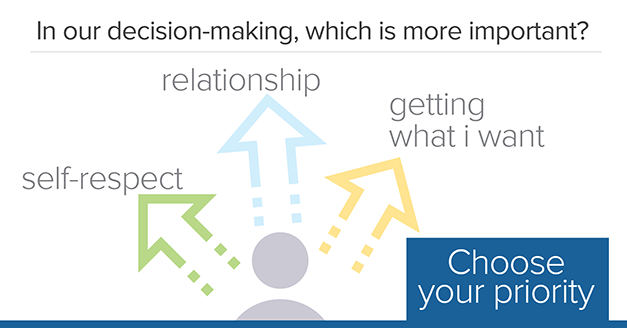
In DBT, we don’t necessarily think of discussions or decisions as “battles.” However, we do consider balancing priorities with relationships.
We may make the decision to let something go for the sake of the relationship. Or conversely, sometimes our convictions are so strong that we will not consider any other response, and we stick to our values. Sometimes we are in the middle — we have a preference but are not willing to dig in our heels to get our way.
For example, we may feel strongly about our values/morals, and nothing would cause us to deviate. If a friend asked us to lie for her to cover up a deviant behavior, we would not do so because it goes against our value of honesty.
Another person may value relationship and loyalty over honesty, and would, therefore, choose to lie to support the friend.
Some people fall in the middle and decide the seriousness of the deviant behavior and make a decision to lie or to be truthful based on the situation.
DBT advocates for flexibility. Sometimes, it is a hard “no” and nothing will make us budge from this position. However, not everything can be this level of intensity. We become willful instead of willing if we always want our way. People find us difficult to get along with.
We can practice willingness, which values the other person and their needs. We do what they want in order to nurture or support the relationship. For example, we allow the kids to make a mess (or join them in making the mess) as this fosters a positive relationship and acceptance.
The intensity in which we make requests of others (or say no to requests from others) depends upon our values and our priorities.